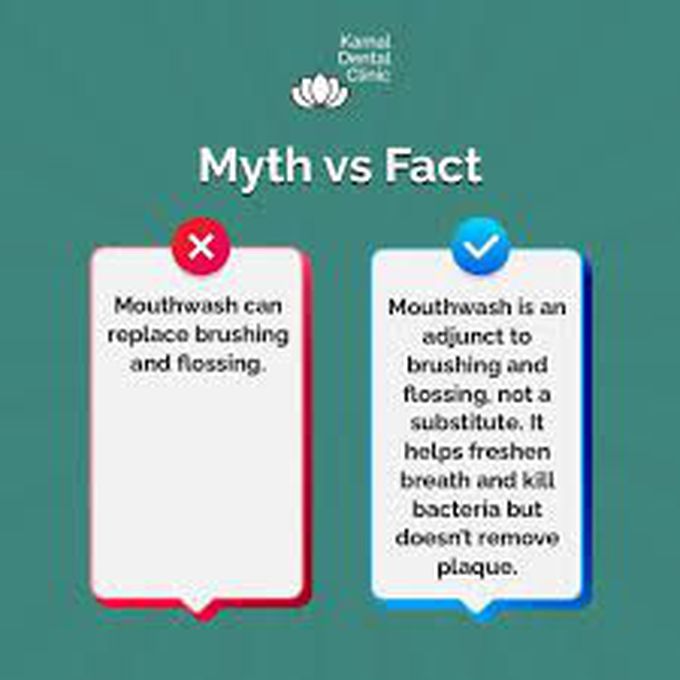


Myths vs Facts about mouthwash
Mouthwash is often used to freshen breath and promote oral hygiene, but it's not a replacement for brushing and flossing, and it's not always the most effective solution for all oral health concerns. While mouthwash can provide some benefits, like killing bacteria and freshening breath, it's important to understand both the facts and myths surrounding its use. Facts: Mouthwash can help freshen breath: Some mouthwashes contain ingredients that can mask bad breath, but this effect is often temporary, according to Ouellette Family Dentistry. Mouthwash can kill some bacteria: Certain mouthwashes contain ingredients that can kill bacteria, which can be beneficial for reducing plaque and preventing gum disease, reports DermNet. Mouthwash can help with certain dental conditions: For example, fluoride mouthwashes can help remineralize tooth enamel, says Arden Dental Care. Mouthwash is not a substitute for brushing and flossing: Mouthwash cannot remove plaque and debris as effectively as brushing and flossing. Myths: Mouthwash is essential for dental health: While mouthwash can be a helpful addition to your oral hygiene routine, it's not a necessity for maintaining good dental health. Mouthwash can cure bad breath: While mouthwash can freshen breath, it doesn't address the underlying causes of bad breath, according to www.roguevalleydentist.com. Mouthwash can replace brushing and flossing: Mouthwash should never replace brushing and flossing, as it cannot effectively remove plaque and debris from the teeth. Mouthwash can solve all oral health problems: While mouthwash can address some issues like bad breath and plaque, it's not a cure-all for all dental problems.

